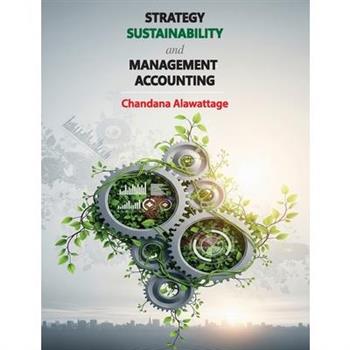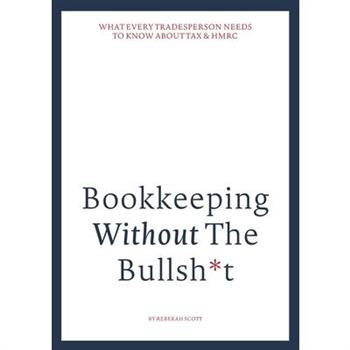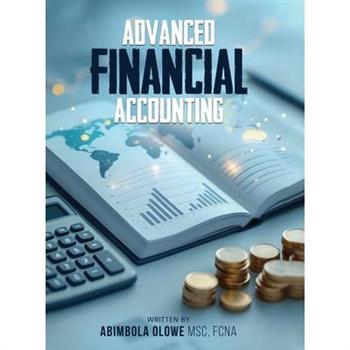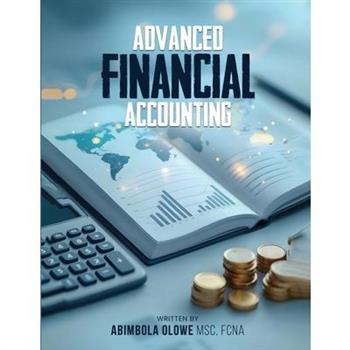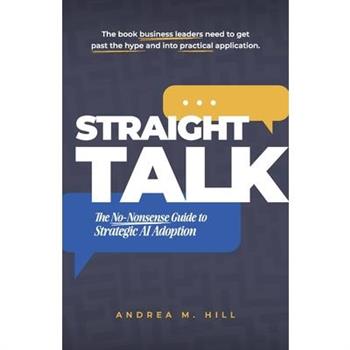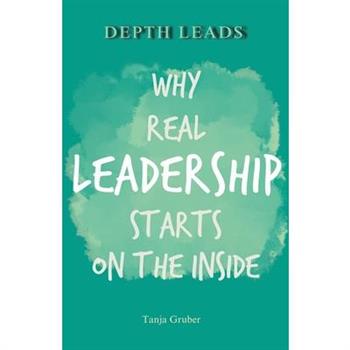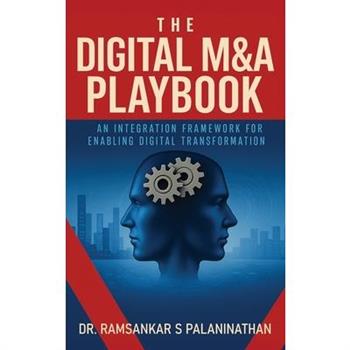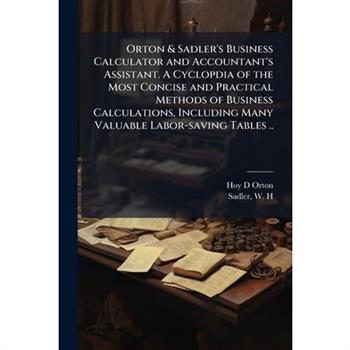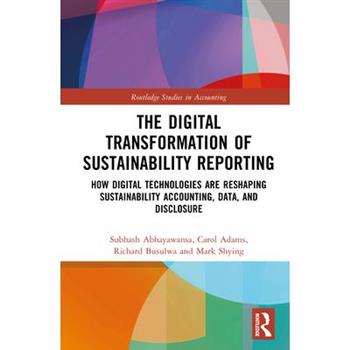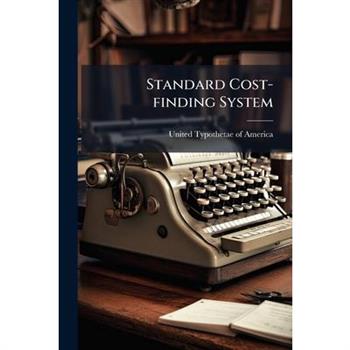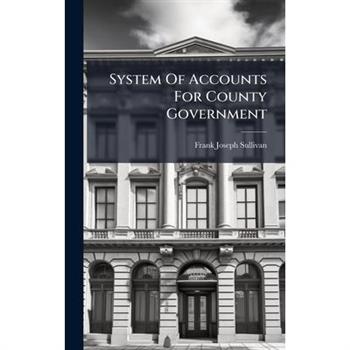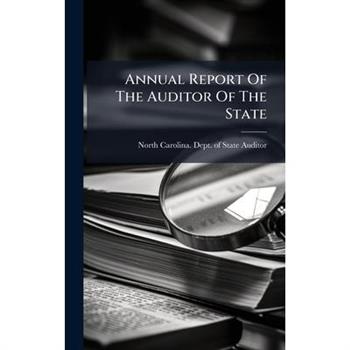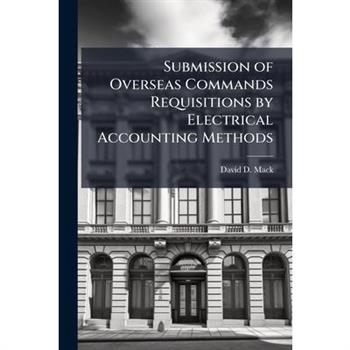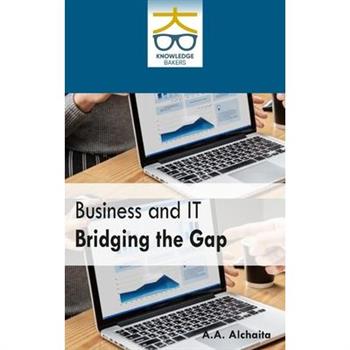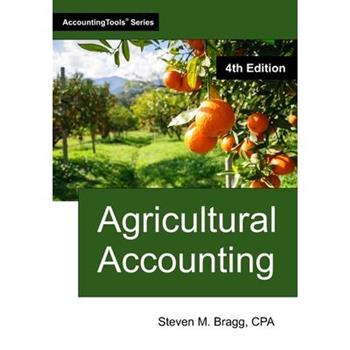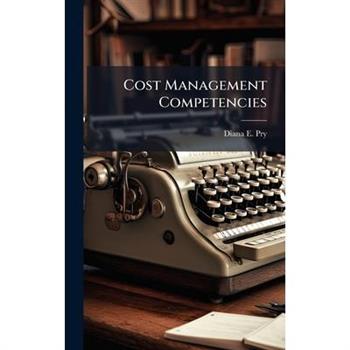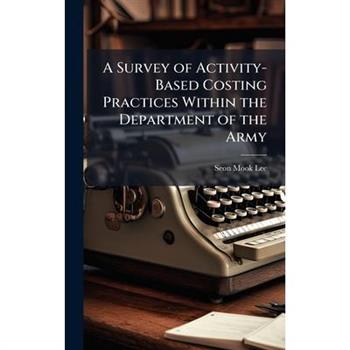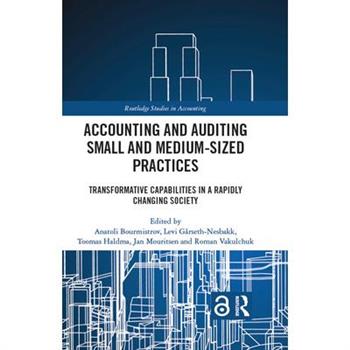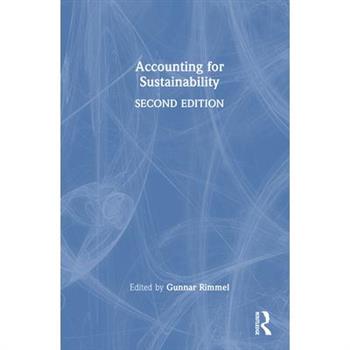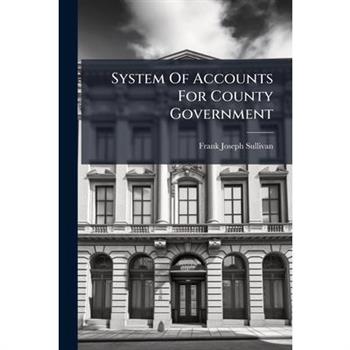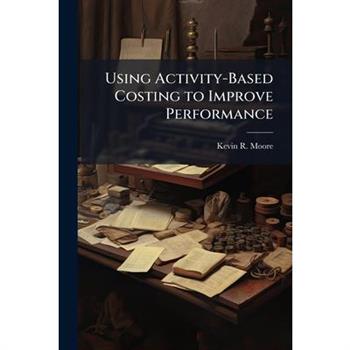Strategy Sustainability and Management Accounting
In an era shaped by the "Strategic Turn," the management accountant is no longer a recorder of past performance but a designer of future value. Today's professionals must navigate neoliberal competition, digital transformation, and the accelerating sustainability agenda.Strategy, Sustainability, and Management Accounting goes beyond spreadsheets to explain the purpose, politics, and practice of modern business. More than a textbook, it is a critical toolkit for emerging accountants who must balance profit with the needs of people and the planet.Bridging Theory and PracticeDeveloped from years of teaching strategic management accounting at leading liberal universities, this book blends rigorous techno-managerial training with insights from economics, politics, and the social sciences. Readers master the calculations and the contexts that shape them.Inside You Will Learn: The Strategic Turn: How neoliberalism, globalisation, and digitalisation reshape competition and challenge traditional accounting.Porterian & Post-Porterian Strategy: From Five Forces to the Value Chain and how these frameworks evolve in the ESG era.Strategic Pricing & Positioning: Target Costing, Lifecycle Costing, and Dynamic Pricing for competing in the "Survival Zone."Performance & Control: Balanced Scorecard, Simons' Levers of Control, and organisational alignment.Operational Excellence: Quality Costing, Manufacturing Flexibility, and Strategic Cost Management at the production level.Sustainability as Strategy: Moving past greenwashing toward ecological accounting, genuine ESG integration, and critiques of managerial capture.Case Studies That Bring Strategy to Life: Nike: Competing in a neoliberal, digital marketplace.Tesla vs. VW vs. Toyota: Strategic positioning in the EV transition.Patagonia: Pricing a mission-driven value proposition.Unilever: The tensions of strategic performance management.Interface Inc.: From "Mission Zero" to "Climate Take Back."H&M Group: Trust, transparency, and sustainability in fast fashion.Who Should Read This Book: A core text for upper-level undergraduates, postgraduates, and MBA students in Strategic Management Accounting, Management Control, and Sustainability Accounting. A valuable resource for finance professionals seeking to evolve from analysts into strategic partners.Equip yourself to understand-and influence-the contradictions of modern capitalism.
Social Media Strategies for Entrepreneurs
Social media has emerged as a formidable force in both synergistic engagement and economic influence, offering unprecedented strategic advantage across diverse business sectors. Particularly for small enterprises historically constrained by limited access to expansive marketing channels. Social media has facilitated transformative opportunities for visibility, outreach, and sustained growth in competitive markets. The importance of social media to the small business owner is significantly greater than that of the larger firms, which have greater customer reach and traditional marketing influence
QuickBooks Online for Dummies, 2026 Edition
Step-by-step guidance on the latest version of the popular cloud accounting app QuickBooks Online For Dummies, 2026 Edition helps you save time and money. This beginner-friendly guide walks you through the basic setup of the online accounting software. Plus, this resource provides detailed guidance on key features, so you know how to navigate your financial data with ease. With QuickBooks Online For Dummies, 2026 Edition, you'll discover how to use any device to: view and update records, create invoices, record sales, pay bills, manage inventory, print checks, process payroll, prepare tax returns, balance accounts, generate financial reports, and beyond. Best of all? Everything's backed up in the cloud, so you'll get the peace of mind that comes with secure data. Use this Dummies guide to get up and running with QuickBooks Online. Inside: Make the switch to QuickBooks Online, or set up your business finances from scratch Get easy-to-follow instructions for accessing your data remotely and saving time with automated features Understand the new interface and the latest features, including Project Center and AI integration Stay on top of your budget, your taxes, and your reporting requirements QuickBooks Online is easy to use for any type of business, and QuickBooks Online For Dummies makes it even easier.
QuickBooks Desktop All-In-One for Dummies
An all-encompassing guide to a popular desktop accounting software QuickBooks Desktop All-in-One For Dummies clearly guides you on how to manage your business finances through QuickBooks Desktop. This comprehensive resource walks you through advanced features and overall layout, so you can maximize the value this software brings to your business. Feel confident invoicing customers, paying vendors, tracking inventory, do-it-yourself payroll, preparing financial statements and reports, creating a business plan forecast, and more. Plus, you'll get helpful tips for protecting your financial data and troubleshooting any potential snags along the way. Inside: Get started with QuickBooks Desktop and set up your accounting system Get easy-to-follow instructions for saving time with easy bookkeeping and automated features Learn to use advanced features as your business grows, so you can scale for the future Know your tax and reporting requirements From QuickBooks Desktop setup and bookkeeping basics to importing your data and performing all the tasks you need to keep things running smoothly, QuickBooks Desktop All-in-One For Dummies is your go-to
EB-1(c) Multinational Manager Petition
Do you currently have your own business in your home country? Do you want to open a business in the United States? Have you already received the L-1 Nonimmigrant Visa? Do you want to want to apply for the Green Card through an employment-based visa petition? This type of petition might be the best employment way to obtain the Green Card. You do not need to have an investment of more than $1,000,000 or a million dollars. It is not granted conditionally for 2 years like the EB-5. It is not backlogged for years but is current. Yes, the EB-1( c ) might be the best way for you to get residency for you, your spouse and your children. In order to initially even be considered for this type of visa, you will need to make sure that there is a company which you are a manager or executive in your home country (or a country outside of the U.S.) and then a branch office in the U.S. where you are a manager or executive. That would be the initial basis for you to apply for this type of investment visa. Note that the actual investment for this type of visa is much smaller than the EB-5 Investor Visa. Additionally, there is no necessity for a treaty with the foreign country such as with an E-2 Investment Visa or E-1 Treaty-Trader Visa. While it would be better and more effective to use an experienced attorney, it is clear that many times people just do not have the funds to retain an attorney. Therefore, note that this EB-1(c) Multinational Manager Petition is made by an experienced immigration lawyer with nearly 30 years of experience. It is real and it was actually submitted. You can put your own facts and information in this petition, and note that it will be a very good sample for you to proceed with the EB-1 (c ). This is the entrepreneurial way to obtain the Green Card without needing tons of money and without waiting years. It is possible to apply for the EB-1 ( c ) even through you do not have the L-1. However, it will be more difficult. One reason to do this if your children will age out and you need to hurry, it might be an option. If approved, it will be a permanent Green Card, not the 2 year conditional Green Card.The sample EB-1(c) Multinational Manager Petition will give lots of great information and a significant amount of information and data that will comply with the requirements. Thus, if you cannot hire an immigration lawyer to prepare the necessary EB-1(c) Multinational Manager Petition, then this is the next best thing. Follow it carefully and closely and you will have a real chance of realizing your dream to stay inside the United States. Note that the adjudicating officer at USCIS is not your friend or the Consulate Officer at the U.S. Consulate deciding whether you should get this particular visa or status.We certainly hope you find this petition useful and helpful and hope for the best immigration experience you can have. We do have petitions on every subject area of immigration, and you might look at those if needed as well. If you do need to actually have a consultation, you can call our U.S. Immigration Law office at 562-495-0554 for an initial free consultation to determine what must be done to help you and your family.
Bookkeeping without the bullsh*t
Hi, I'm Rebekah - founder of Accurex Accounting Solutions, and I help tradespeople and small business owners get their books in order without the overwhelm, jargon, or eye-watering tax bills.If you're reading this, chances are you're either running your business full-time or on the tools during the day and trying to keep HMRC happy at night - usually with a pile of receipts, a bit of guesswork, and the hope that it's all "close enough."This book is for you.It's not full of fluff, complicated tax rules, or accounting waffle. It's a straight-talking guide to what actually matters when it comes to your bookkeeping and tax - so you can avoid stress, stay out of trouble, and keep more of what you earn.You'll learn: -What HMRC expects (and what they don't)-How to avoid the biggest bookkeeping mistakes-What you can claim without triggering alarm bells-Easy systems to stay on top of your finances-How to make tax time less painful - or even boring (in a good way)Whether you're a sole trader, just started using software, or you've been winging it for years, this guide will help you make sense of the money side of your business - and give you confidence that you're doing things right.So grab a brew (or a beer), and let's sort this out together - no bullsh*t.
Your Financial Advisor Is Not Managing Your Money (and Never Was)
Are you paying management fees to an advisor who lost 57% of your money in 2009? If you're like millions of investors, your "money manager" isn't managing anything-they're using a buy-and-hold strategy that leaves your wealth defenseless when bear markets strike. You deserve better than watching your retirement savings get devoured while your advisor shrugs and says, "It always bounces back."In this explosive expos矇, you'll learn how to: Identify the red flags that reveal your advisor is a "Pie Chart Promoter"Understand why 89% of advisors use the same wealth-destroying strategyRecognize the early warning signs of bear markets before they maul your portfolioInterview potential advisors with the tough questions they don't want to answerProtect your money using sector rotation and moving averagesThe financial industry has institutionalized a massive deception. While they collect fees for "managing" your money, they're actually doing nothing but hoping the market rises. This book tears away the veil of respectability from an industry that has abandoned its duty to protect your wealth. Armed with fifty years of experience and data-driven proof, John Reutemann reveals how real money management works-and why most advisors refuse to do it.Your money doesn't have to be the bear's lunch. It's time to cage the beast.
The Price of Forgetting
In a world where every app, platform, and service wants your card on file, the real cost of convenience is easy to overlook until it quietly drains your wallet, focus, and freedom. This eye-opening guide dives deep into the hidden world of digital subscription traps, exposing how companies use behavioral finance tricks to turn passive payments into massive profits while you forget what you re even paying for. If you ve ever felt confused by where your money goes each month or frustrated by the elusive feeling of financial control, this book is your wake-up call. It's not just about cutting costs it's about reclaiming your power through mindful spending and conscious money management. You ll learn how to identify hidden expenses, decode emotional spending triggers, and redesign your financial habits around what truly matters. Perfect for smart, self-aware readers tired of feeling outmaneuvered by automated systems, this book teaches you how to thrive in the subscription economy budgeting landscape. With real-life examples, powerful reflection prompts, and a fresh perspective on everyday spending, you'll discover how to create clarity, peace, and purpose in your financial life. Whether you're seeking to reclaim financial clarity, simplify your life, or align your money with your values, this guide delivers the insight and tools to break free and stay free. Say goodbye to financial fog. It s time to automate awareness, not amnesia.
Investing for Teens
Start Building a Future That Works for You-Right Now Are you ready to take control of your financial future before you even hit adulthood? This guide transforms complex money concepts into straightforward, teen-friendly lessons that make managing and growing your money exciting and achievable. Say goodbye to confusion and hello to confidence as you learn the secrets that most schools won't teach you. Imagine setting smart goals, creating a budget that actually works, and understanding the difference between saving and investing - all in ways that fit your life. Discover how even a small amount of money can grow exponentially over time through the power of compound interest, and find out why investing isn't just for the wealthy. Whether you're starting with nothing or already have some cash, this book walks you through every step - from earning your first investment dollars, to picking your first stocks and avoiding costly mistakes. Developing the right mindset and habits is key, especially when peer pressure and trendy financial advice can lead you astray. Learn how to think like an investor, stay consistent when others don't understand your goals, and boost your investing power with smart side hustles. Real-life strategies and insights from teen millionaires help you build a wealth mindset early on. By following a clear, actionable roadmap, you'll not only grow a portfolio that evolves with you but also prepare yourself for a lifetime of financial freedom. Start planning your 20s, 30s, and beyond today with confidence. This isn't just about money - it's about empowering you to shape the life you want on your own terms.
Advanced Financial Accounting
Advanced Financial AccountingBy Abimbola OloweUnlock the complexities of high-level accounting with Advance Financial Accounting, a comprehensive guide designed for students, professionals, and financial practitioners seeking to master the principles and practices that underpin modern financial reporting and decision-making.Authored by seasoned academic and finance expert Abimbola Olowe, this authoritative textbook offers deep insights into the core concepts, methodologies, and regulatory frameworks of financial accounting. From the foundational principles and accounting standards (SAS, IAS, IFRS) to the intricate treatments of depreciation, taxation, leases, petroleum accounting, and construction contracts, this book systematically covers the entire spectrum of advanced accounting topics.Structured in a clear, pedagogical format with practical examples, revision questions, and detailed solutions, this volume serves as both a teaching companion and a self-study tool. Readers will gain a solid understanding of accounting processes, financial statement analysis, economic and accounting income theories, and the impact of inflation through methods like Current Purchasing Power Accounting and Current Cost Accounting.Whether you're preparing for professional examinations, enhancing your academic coursework, or refining your corporate accounting skills, Advance Financial Accounting is your essential resource for navigating the evolving landscape of financial transparency, accountability, and compliance.Key Features: In-depth explanations aligned with Nigerian SAS and international standards (IAS/IFRS)Real-world illustrations of accounting concepts and their applicationsComprehensive chapters on taxation, leases, banks, oil & gas accounting, and moreDesigned for students, lecturers, professionals, and industry stakeholdersElevate your expertise with one of the most robust financial accounting texts tailored to the Nigerian and global accounting environment.
Business Excellence Models in UAE
The United Arab Emirates (UAE) is one of the most prosperous countries in the Arab world, based on various parameters such as gross domestic product (GDP), infrastructure development, and human rights parameters (Obay, 2009). The country offers a tangible and organized infrastructure as well as an approachable and unobstructed employment market, resulting in remarkable trade and industry growth (Al-Khazraji, 2009). Proper corporate governance, corporate sustainability, corporate social responsibility (CSR), and continual improvement (CI) do not support rapid modernization (Obay, 2009
Advanced Financial Accounting
Advanced Financial AccountingBy Abimbola OloweUnlock the complexities of high-level accounting with Advance Financial Accounting, a comprehensive guide designed for students, professionals, and financial practitioners seeking to master the principles and practices that underpin modern financial reporting and decision-making.Authored by seasoned academic and finance expert Abimbola Olowe, this authoritative textbook offers deep insights into the core concepts, methodologies, and regulatory frameworks of financial accounting. From the foundational principles and accounting standards (SAS, IAS, IFRS) to the intricate treatments of depreciation, taxation, leases, petroleum accounting, and construction contracts, this book systematically covers the entire spectrum of advanced accounting topics.Structured in a clear, pedagogical format with practical examples, revision questions, and detailed solutions, this volume serves as both a teaching companion and a self-study tool. Readers will gain a solid understanding of accounting processes, financial statement analysis, economic and accounting income theories, and the impact of inflation through methods like Current Purchasing Power Accounting and Current Cost Accounting.Whether you're preparing for professional examinations, enhancing your academic coursework, or refining your corporate accounting skills, Advance Financial Accounting is your essential resource for navigating the evolving landscape of financial transparency, accountability, and compliance.Key Features: In-depth explanations aligned with Nigerian SAS and international standards (IAS/IFRS)Real-world illustrations of accounting concepts and their applicationsComprehensive chapters on taxation, leases, banks, oil & gas accounting, and moreDesigned for students, lecturers, professionals, and industry stakeholdersElevate your expertise with one of the most robust financial accounting texts tailored to the Nigerian and global accounting environment.
Straight Talk
Straight Talk: The No-Nonsense Guide to Strategic AI Adoption is written for owners, CEOs, and senior executives who must lead their organizations through the challenges of artificial intelligence. Andrea Hill, a seasoned executive and advisor with more than 35 years of experience in business transformation, provides a practical framework for adopting AI responsibly, strategically, and with confidence.AI is already embedded in daily business systems: from email and customer management to inventory and financial forecasting. The question is no longer whether to use AI, but how to use it in ways that strengthen rather than expose the enterprise. This book serves as a compass, offering principles and practices to remain competitive, compliant, and trusted.Readers will learn to: Distinguish hype from practical applications that deliver real value.Address ethical and social risks such as bias, privacy, and workforce impact.Navigate evolving legal and regulatory requirements in the U.S. and abroad.Apply governance frameworks like NIST and ISO/IEC to safeguard operations.Evaluate vendors and protect against AI-driven cybersecurity threats.Integrate AI into marketing, HR, operations, and analytics without eroding trust or judgment.Unlike technical manuals or trend-driven guides, Straight Talk focuses on the leadership challenge: managing opportunity and risk at the same time. With accessible explanations and actionable frameworks, it equips leaders to move beyond experimentation and implement AI as a responsible, strategic driver of growth.
Money and Meaning
Take charge of your finances and get on the road to financial independence.Wealth management is more than just managing money. When building wealth, priorities are made, goals are established, and values become clear. Do you have the tools you need to make smart choices?In Money and Meaning, Christopher Poch shares his strategies and insight for achieving financial independence and creating peace of mind. This is a unique look at how emotions impact investor results as much as logic or analysis, and why embracing emotions benefits your overall approach to finances. You'll learn how to use financial assets to accomplish your goals and unlock the mindset you need to manage both money and overall wealth. With wealth come important considerations involving family, friends, and community. Money and Meaning is a straightforward, step-by-step guide for navigating these complex issues and reducing stress in planning for the future.
Financial Planning for Retirement
"Financial Planning for Retirement: A Comprehensive Guide" is an essential resource for anyone looking to secure their financial future. This book offers a step-by-step approach to retirement planning, covering everything from savings strategies and investment options to tax considerations and estate planning. With practical advice and expert insights, you'll learn how to set realistic goals, manage your assets, and make informed decisions to ensure a comfortable and worry-free retirement. Whether you're just starting to plan or nearing retirement age, this comprehensive guide provides the tools and knowledge you need to build a robust financial plan for your golden years.
Depth Leads
Transforming Leadership - Turning Crisis into StrengthAnyone who runs a company, holds a leadership position, or is involved in a responsible voluntary role knows there are times when nothing seems to go right. Everything comes to a standstill, energy levels drop, and the team is no longer pulling together as you would like.This book is aimed at anyone who is in the midst of a crisis - physical, mental, or emotional - and is in danger of losing their courage to face life. Exhaustion and despondency are on the rise among high achievers, with consequences that extend far beyond their personal lives.The author talks openly and candidly about her deepest crises and how much change is possible when you are willing to be honest with yourself and courageously face your own issues.True to life and encouraging, this book shows how personal challenges can be understood and put into perspective. With the help of practical exercises, it becomes possible to gain inner clarity, self-confidence, and new leadership skills - for yourself and for others.
Why Authors Go Wrong, and Other Explanations
Unlock the secrets to literary success with "Why Authors Go Wrong," a timeless exploration of the common pitfalls that aspiring writers face. This captivating work, now republished by Alpha Editions after decades in obscurity, offers invaluable insights that resonate with both novice and seasoned authors alike. Delve into the pages of this restored classic and discover the essential advice on navigating the publishing industry, avoiding storytelling flaws, and enhancing your writing skills. With a blend of practical self-publishing tips and profound reflections on authorial challenges, this book serves as a guiding light for anyone seeking to improve their craft. Its unique literary significance lies not only in its rich historical context but also in its relevance to today's dynamic literary landscape. As a collector s item and cultural treasure, this edition has been meticulously curated for both casual readers and dedicated classic literature enthusiasts. Whether you re looking to engage your readers more effectively or seeking strategies to overcome common author errors, "Why Authors Go Wrong" is your essential companion on the journey to publishing success. Embrace the wisdom of the past and transform your writing journey today!
The Digital M&A Playbook
In the contemporary digital economy, achieving growth involves more than simply scaling operations; it requires a transformative approach. For large enterprises, mergers and acquisitions (M&A) have become a significant strategy for accelerating digital transformation. However, a common challenge is that many digital M&A initiatives encounter obstacles during the post-merger integration, often leading to failure. In The Digital M&A Playbook, Dr. Ramsankar S Palaninathan-a seasoned technology leader, doctoral researcher, and transformation strategist-combines theoretical insights with practical experience. He presents a clear, actionable framework for executing digital integration effectively at scale. The book introduces the proprietary DMISC framework, which serves as a guide for transforming M&A transactions into successful digital transformations.Inside, you'll discover: - The hidden risks that derail digital M&A-and how to avoid them- How to align culture, talent, and technology post-mergerRamsankar S Palaninathan is a seasoned technology and business transformation leader with over 20 years of experience driving innovation at the intersection of digital strategy, enterprise systems, and mergers & acquisitions. With deep roots in software development and leadership across global organizations, he specializes in leading digital transformation, cloud migration, and AI/ML adoption in complex enterprise environments.His career spans top-tier companies, including Verizon, Cognizant, Accenture, and, notably, Macy's Systems and Technology, where he played a key role in unifying customer systems and modernizing digital infrastructure. He has led multi-disciplinary teams and high-impact programs, consistently aligning technology execution with business strategy.Ramsankar holds a Doctor of Business Administration from the University of Maryland Global Campus, where his research focused on integration strategies for digital transformation through M&A. He also earned master's degrees in Entrepreneurship (University of Florida) and Computer Science (Maharishi International University) and a Bachelor's degree in Electronics and Communication Engineering from the University of Madras.He is MIT-certified in Applied Data Science and holds TOGAF, Scrum, SAFe, and Cloud Technologies certifications. He is a Beta Gamma Sigma inductee and a proud Thomas S. Johnson Entrepreneurial Scholar. When not writing or solving enterprise problems, Ramsankar enjoys playing badminton, motorcycling, and spending quality time with his family in Atlanta, Georgia.- Practical tools and checklists to lead integration with confidence- Case insights drawn from decades of enterprise experienceWhether you are an executive formulating plans for your next acquisition, a strategist spearheading transformation efforts, or a consultant assisting clients through change, "The Digital M&A Playbook" serves as a vital resource for fostering synergy, promoting agility, and achieving sustainable growth through digital M&ADon't just buy companies. Build the future.
Orton & Sadler's Business Calculator and Accountant's Assistant. A Cyclopdia of the Most Concise and Practical Methods of Business Calculations, Including Many Valuable Labor-saving Tables ..
Orton & Sadler's Business Calculator and Accountant's Assistant, originally published in 1897, is a comprehensive cyclopedia of business calculations. This vintage guide offers a wealth of concise and practical methods for tackling various business-related mathematical problems. Including many labor-saving tables, it is a valuable resource for accountants, business owners, and anyone interested in historical business practices. Designed as both a calculator and an assistant, this book provides insights into the mathematical techniques used in late 19th-century commerce. This historic volume provides a glimpse into the financial world of the past and continues to be of interest to historians, researchers, and those fascinated by the evolution of business practices.This work has been selected by scholars as being culturally important, and is part of the knowledge base of civilization as we know it. This work was reproduced from the original artifact, and remains as true to the original work as possible. Therefore, you will see the original copyright references, library stamps (as most of these works have been housed in our most important libraries around the world), and other notations in the work.This work is in the public domain in the United States of America, and possibly other nations. Within the United States, you may freely copy and distribute this work, as no entity (individual or corporate) has a copyright on the body of the work.As a reproduction of a historical artifact, this work may contain missing or blurred pages, poor pictures, errant marks, etc. Scholars believe, and we concur, that this work is important enough to be preserved, reproduced, and made generally available to the public. We appreciate your support of the preservation process, and thank you for being an important part of keeping this knowledge alive and relevant.
Forensic Debt Investigator
What if I told you that most of these companies do not have the qualifications to enforce you to pay any debt? Which means their judgements against you is null and void! Meaning the debt never existed! Are you ready to go further down the rabbit hole to find out where all of this began? How the Crown Empire in England and the Vatican actually rules all of the banks in the world! How it effects all debt in other countries! Did you know your birth certificate is a bond monetized in the NY Stock Exchange? Your debt has to abide by 4 Accounting standards such as IFRS, GAAP, Basel III Accord and Uncitril Conventions! I was trained by a Forensic Accountant who investigated fraud and knew how to bring these shady companies to their knees! You will be absolutely shocked Included is a powerful Debt Validation letter called the Deadly Weapon Letter and the Administrative process to complete each case you are working on with the help of a notary or even without a notary.
The Digital Transformation of Sustainability Reporting
As global sustainability expectations intensify, digital technologies (DTs) are becoming essential tools for efficiently and effectively managing, measuring, and communicating sustainability performance and impact. This book unpacks how emerging and established DTs, from artificial intelligence and blockchain to cloud platforms and the Internet of Things, can transform sustainability reporting and data management, enhance decision-making, and improve accountability across value chains.Drawing on insights from extensive interviews and cross-sectional surveys of sustainability, accounting, auditing, data science and technology professionals, this book delivers a practical and evidence-based roadmap of how DTs are being leveraged and could be better leveraged in internal and external sustainability reporting-related activities. It explores how DTs can enhance the efficiency and effectiveness of collecting, analysing, and assuring sustainability-related data, while also supporting scenario planning, target setting, and improving the accessibility and usability of disclosures for stakeholders. This book further examines the key drivers, opportunities, and challenges shaping the use of DTs in sustainability reporting and offers a valuable reference for practitioners and finance professionals through a concise mapping of relevant digital tools and platforms. It also explores the evolving roles and competencies required of accounting and finance professionals to effectively contribute to sustainability reporting and lead technology-enabled sustainability performance.This is a must-read for: Sustainability managers and leaders seeking more efficient, credible, and future-ready sustainability reporting practices Policymakers and regulators navigating the digitalisation of corporate transparency and compliance Technology providers aiming to align product innovation with the fast-evolving needs of sustainability reporting Educators and students in accounting, finance, sustainability, and data science fields preparing for the future of sustainability-driven business Researchers exploring the intersection of digital innovation, regulatory change, and reporting of sustainability risks, performance, and impacts
Python for Excel Users
Introduction: Elevate Your Analytics with PythonIn today's data-driven world, the ability to efficiently analyze and interpret information is more crucial than ever, especially in the business sector. Python for Excel Users: A Beginner's Guide is tailored for business students and professionals who are proficient in Microsoft Excel but are ready to embark on their Python journey. As a powerful and versatile programming language, Python has become indispensable in data analysis. This book bridges the gap between Excel and Python by providing parallel exercises that demonstrate how Python can amplify business analytics tasks with unmatched efficiency and flexibility.Through its side-by-side comparisons, interactive Python exercises, and a "teachable moment" approach, this guide offers a unique and intuitive learning experience. By translating familiar Excel tasks into Python's dynamic and versatile ecosystem, you'll not only enhance your data analysis skills but also gain confidence in programming.Why Python?Did you know that Python powers cutting-edge technologies like ChatGPT? Indeed, Python forms the foundation of many machine learning algorithms, including large language models (LLMs). Python is more than a programming language; it's a tool for understanding and shaping the digital world. Despite its advanced capabilities, Python's simple, readable syntax makes it accessible to everyone - from professional software developers to citizen developers like you. Dubbed the "language of the people," Python is revolutionizing how we approach problem-solving and automation in the modern world.Becoming Tomorrow's Tech- Savvy LeadersThe leaders of tomorrow are not just visionaries - they are innovators who harness the power of technology to drive change and inspire others. This book guides you through different scenarios to help you understand the connections between business questions and analytics steps we are taking.As business students embracing Python, you're positioning yourselves as future-ready leaders equipped to navigate and excel in the complexities of modern business.Welcome to a journey that will elevate your analytics, expand your technological fluency, and transform you into a tech-savvy leader of the future.
Financial Freedom
Financial freedom isn't a dream-it's a plan. In Financial Freedom: Doing Nothing is an Option - Generational Wealth Seminar Workbook, Dr. Edmund H. Moore draws on decades of personal experience, community leadership, and practical wisdom to guide you step-by-step toward building lasting wealth for yourself and future generations.This interactive workbook is more than theory-it's a hands-on roadmap designed to help you understand money, grow it, protect it, and pass it on. Rooted in faith-based principles yet universally applicable, Dr. Moore offers an accessible, no-nonsense approach that empowers readers from all walks of life to take control of their financial destiny. Inside, You'll Discover: Good Soil Principles - How your mindset and habits shape your financial futureStrong Financial Foundations - The tools, strategies, and disciplines to build stabilityKnowing Your Numbers - How to track, budget, and plan for lasting wealthMultiple Streams of Income - Practical ways to diversify and grow your earningsProtecting Your Assets - Insurance, legal planning, and safeguarding your legacyPlanning for the Future - Retirement strategies and generational wealth transferWith exercises, reflection prompts, and real-world examples, this workbook bridges the gap between knowing what to do and actually doing it. Whether you're just starting out, recovering from financial setbacks, or preparing to leave a lasting legacy, you'll gain the clarity and confidence to move forward.Who This Workbook Is For: Individuals and families committed to breaking cycles of debt and financial struggleCommunity leaders, educators, and church groups teaching financial literacyAnyone seeking a faith-centered yet practical guide to wealth buildingDr. Moore's engaging, relatable style makes complex topics simple to understand-because financial literacy should be accessible to everyone, not just the wealthy.
Making Wall Street Irrelevant Successful Investing Made Simple
In Making Wall Street Irrelevant, seasoned investor and CFA Mark Bern shares decades of proven investment wisdom through a clear, step-by-step guide designed for readers at any experience level. With a practical, no-nonsense approach, Bern breaks down complex financial concepts and demonstrates how true financial independence can be achieved not through speculation or shortcuts, but through consistency, discipline, and the power of compounding. Drawing on real-life examples including inspiring interludes like The Secretary. The Janitor, and The Teacher, Bern proves that extraordinary wealth is within reach for everyday people earning average incomes. The book explores multiple paths to financial freedom, focusing on three core asset classes: stocks, bonds, and real estate. Whether you pursue one or a combination, Bern provides detailed yet easy-to-follow guidance to help you build long-term wealth while avoiding common investing pitfalls. With the voice of a trusted mentor, Bern delivers authentic, experience-backed insight not sales pitches. His integrity and commitment to helping readers make smart, sustainable decisions set this book apart. Written especially for young professionals and individuals striving for consistent financial progress, Making Wall Street Irrelevant demystifies investing and shows how growing a reliable stream of income year after year can make financial freedom not just possible, but inevitable.
Standard Cost-finding System
"Standard Cost-finding System" offers a comprehensive guide to implementing standard costing principles within the printing business. Authored by the United Typothetae of America, this book provides essential information on utilizing the standard cost-finding system, complete with a detailed list of operations classified by department, distinguishing between productive and non-productive activities. This resource is invaluable for printing businesses seeking to improve cost control, enhance efficiency, and gain a deeper understanding of their operational expenses. The principles outlined can be applied to streamline processes, optimize resource allocation, and ultimately improve profitability. Originally intended for the printing industry, the lessons within can also be applied to other manufacturing and service industries.This work has been selected by scholars as being culturally important, and is part of the knowledge base of civilization as we know it. This work was reproduced from the original artifact, and remains as true to the original work as possible. Therefore, you will see the original copyright references, library stamps (as most of these works have been housed in our most important libraries around the world), and other notations in the work.This work is in the public domain in the United States of America, and possibly other nations. Within the United States, you may freely copy and distribute this work, as no entity (individual or corporate) has a copyright on the body of the work.As a reproduction of a historical artifact, this work may contain missing or blurred pages, poor pictures, errant marks, etc. Scholars believe, and we concur, that this work is important enough to be preserved, reproduced, and made generally available to the public. We appreciate your support of the preservation process, and thank you for being an important part of keeping this knowledge alive and relevant.
The Social Position And Claims Of Book-keepers And Clerks Considered
"The Social Position And Claims Of Book-keepers And Clerks Considered" examines the occupational status and societal perceptions of clerical workers in the nineteenth century. Author J. S. Harrison delves into the importance of bookkeepers and clerks within the burgeoning industrial economy, evaluating their contributions and advocating for improved recognition and respect. This book provides insight into the historical context of white-collar work, offering a glimpse into the lives and challenges faced by those in these essential roles.This work has been selected by scholars as being culturally important, and is part of the knowledge base of civilization as we know it. This work was reproduced from the original artifact, and remains as true to the original work as possible. Therefore, you will see the original copyright references, library stamps (as most of these works have been housed in our most important libraries around the world), and other notations in the work.This work is in the public domain in the United States of America, and possibly other nations. Within the United States, you may freely copy and distribute this work, as no entity (individual or corporate) has a copyright on the body of the work.As a reproduction of a historical artifact, this work may contain missing or blurred pages, poor pictures, errant marks, etc. Scholars believe, and we concur, that this work is important enough to be preserved, reproduced, and made generally available to the public. We appreciate your support of the preservation process, and thank you for being an important part of keeping this knowledge alive and relevant.
System Of Accounts For County Government
This book, "System Of Accounts For County Government," details a comprehensive accounting system designed for use in county governments. It offers a structured approach to managing finances, ensuring transparency, and maintaining accurate records within the complexities of local government operations. This resource is invaluable for auditors, government officials, and accounting professionals seeking to implement or improve financial systems at the county level. It provides a historical perspective on established practices in governmental accounting. "System Of Accounts For County Government" aims to promote sound financial management and accountability in local governance.This work has been selected by scholars as being culturally important, and is part of the knowledge base of civilization as we know it. This work was reproduced from the original artifact, and remains as true to the original work as possible. Therefore, you will see the original copyright references, library stamps (as most of these works have been housed in our most important libraries around the world), and other notations in the work.This work is in the public domain in the United States of America, and possibly other nations. Within the United States, you may freely copy and distribute this work, as no entity (individual or corporate) has a copyright on the body of the work.As a reproduction of a historical artifact, this work may contain missing or blurred pages, poor pictures, errant marks, etc. Scholars believe, and we concur, that this work is important enough to be preserved, reproduced, and made generally available to the public. We appreciate your support of the preservation process, and thank you for being an important part of keeping this knowledge alive and relevant.
Annual Report Of The Auditor Of The State
This is an annual report from the Auditor of the State of North Carolina. It details the financial activities and audits conducted by the department. This comprehensive report provides insights into the financial health and operational efficiency of various state entities within North Carolina. It is an essential resource for understanding state government finances and accountability. This work has been selected by scholars as being culturally important, and is part of the knowledge base of civilization as we know it. This work was reproduced from the original artifact, and remains as true to the original work as possible. Therefore, you will see the original copyright references, library stamps (as most of these works have been housed in our most important libraries around the world), and other notations in the work.This work is in the public domain in the United States of America, and possibly other nations. Within the United States, you may freely copy and distribute this work, as no entity (individual or corporate) has a copyright on the body of the work.As a reproduction of a historical artifact, this work may contain missing or blurred pages, poor pictures, errant marks, etc. Scholars believe, and we concur, that this work is important enough to be preserved, reproduced, and made generally available to the public. We appreciate your support of the preservation process, and thank you for being an important part of keeping this knowledge alive and relevant.
Revised Forms Of Village Accounts
"Revised Forms Of Village Accounts" offers a detailed look into the accounting practices of villages within the Madras Presidency. This historical document provides valuable insights into the administrative and financial systems of local governance during the specified period. It is an essential resource for researchers and historians interested in understanding the economic and social structures of rural India. The book's focus on village accounts offers a unique perspective on the everyday lives and economic activities of the people within the Madras Presidency, making it a significant contribution to historical scholarship.This work has been selected by scholars as being culturally important, and is part of the knowledge base of civilization as we know it. This work was reproduced from the original artifact, and remains as true to the original work as possible. Therefore, you will see the original copyright references, library stamps (as most of these works have been housed in our most important libraries around the world), and other notations in the work.This work is in the public domain in the United States of America, and possibly other nations. Within the United States, you may freely copy and distribute this work, as no entity (individual or corporate) has a copyright on the body of the work.As a reproduction of a historical artifact, this work may contain missing or blurred pages, poor pictures, errant marks, etc. Scholars believe, and we concur, that this work is important enough to be preserved, reproduced, and made generally available to the public. We appreciate your support of the preservation process, and thank you for being an important part of keeping this knowledge alive and relevant.
Wealthy Ever After
Wealthy Ever After introduces a clear, repeatable system to help ambitious individuals, families, and entrepreneurs take control of their finances, grow their wealth, and create lasting financial security-no matter where they're starting from.Too often, financial advice focuses only on income. But real, lasting wealth isn't just about how much you earn-it's about how you manage, multiply, and protect it.Drawing from years of experience as an estate planning attorney for high-net-worth families, international best-selling author Pamela Maass Garrett (aka Law Mother(R)) reveals the Three Wealth Accelerators used by the most financially successful people: GROW - Strengthen your money mindset, organize your finances, and increase your income through high-impact strategies.MULTIPLY - Invest with confidence and let your money work for you.PROTECT - Safeguard your assets, reduce tax burdens, and create a legacy plan that ensures your wealth lasts for generations.No confusing jargon. No fluff. Just a clear, actionable roadmap to help readers move from financial stress to financial confidence.Whether you're navigating debt, building a business, or trying to make smarter money moves for your family's future, this book delivers the clarity, strategy, and peace of mind you've been searching for.Perfect For Readers Who: -Want a proven financial system that works-without spreadsheets or overwhelm-Are ready to take control of their money, but aren't sure where to start-Value simplicity, clarity, and real-life strategies you can implement-Dream of building and protecting generational wealthWealthy Ever After isn't just a book-it's the mindset shift, financial strategy, and confidence-building system you need to feel in control of your financial future finally.
Revised Forms Of Village Accounts
"Revised Forms Of Village Accounts" offers a detailed look into the accounting practices of villages within the Madras Presidency. This historical document provides valuable insights into the administrative and financial systems of local governance during the specified period. It is an essential resource for researchers and historians interested in understanding the economic and social structures of rural India. The book's focus on village accounts offers a unique perspective on the everyday lives and economic activities of the people within the Madras Presidency, making it a significant contribution to historical scholarship.This work has been selected by scholars as being culturally important, and is part of the knowledge base of civilization as we know it. This work was reproduced from the original artifact, and remains as true to the original work as possible. Therefore, you will see the original copyright references, library stamps (as most of these works have been housed in our most important libraries around the world), and other notations in the work.This work is in the public domain in the United States of America, and possibly other nations. Within the United States, you may freely copy and distribute this work, as no entity (individual or corporate) has a copyright on the body of the work.As a reproduction of a historical artifact, this work may contain missing or blurred pages, poor pictures, errant marks, etc. Scholars believe, and we concur, that this work is important enough to be preserved, reproduced, and made generally available to the public. We appreciate your support of the preservation process, and thank you for being an important part of keeping this knowledge alive and relevant.
My Credit Score Is My Superpower
"A masterful guide that combines wit with wisdom, offering a blueprint for financial security without the stress. Tumeka Jinks has crafted an essential compendium for anyone eager to leave debt in the rearview."- The Budget Blueprint Blog"A financial tour de force that turns bill stress into a distant memory. Tumeka Jinks empowers readers with savvy strategies that are as practical as they are transformative. A must-read for anyone looking to conquer debt with confidence."- Money Matters Monthly"Jinks' approach to tackling debt is not only informative but truly entertaining. Her unique perspective on building credit shines through every page, making this book a compelling read for both novice and adept budgeters."- The Fiscal Times
The 6-and-a-half Habits of Highly Defective Bosses
This book isn't really about the rare, fire-breathing tyrants. It's about the everyday leaders who, despite their best intentions, make life miserable for their teams. Recognize any of these culture-killing workplace nightmares?Bosses hoarding credit while dishing out blamePriorities that change daily, leaving everyone scramblingFeedback that's either nonexistent or a complete disasterHigh performers getting frustrated while mediocrity thrivesEndless obstacles, rules, and meetings that could've been emailsGood news: It doesn't have to be this way. If you lead people (or ever plan to), consider this your survival guide. Packed with real-world stories, sharp humour, and practical fixes, this is the book every leader (and their team) wishes they had sooner.
Wealthy Ever After
Wealthy Ever After introduces a clear, repeatable system to help ambitious individuals, families, and entrepreneurs take control of their finances, grow their wealth, and create lasting financial security-no matter where they're starting from.Too often, financial advice focuses only on income. But real, lasting wealth isn't just about how much you earn-it's about how you manage, multiply, and protect it.Drawing from years of experience as an estate planning attorney for high-net-worth families, international best-selling author Pamela Maass Garrett (aka Law Mother(R)) reveals the Three Wealth Accelerators used by the most financially successful people: GROW - Strengthen your money mindset, organize your finances, and increase your income through high-impact strategies.MULTIPLY - Invest with confidence and let your money work for you.PROTECT - Safeguard your assets, reduce tax burdens, and create a legacy plan that ensures your wealth lasts for generations.No confusing jargon. No fluff. Just a clear, actionable roadmap to help readers move from financial stress to financial confidence.Whether you're navigating debt, building a business, or trying to make smarter money moves for your family's future, this book delivers the clarity, strategy, and peace of mind you've been searching for.Perfect For Readers Who: -Want a proven financial system that works-without spreadsheets or overwhelm-Are ready to take control of their money, but aren't sure where to start-Value simplicity, clarity, and real-life strategies you can implement-Dream of building and protecting generational wealthWealthy Ever After isn't just a book-it's the mindset shift, financial strategy, and confidence-building system you need to feel in control of your financial future finally.
Submission of Overseas Commands Requisitions by Electrical Accounting Methods
Seeks to develop a system whereby requisitions submitted by oversea commands to the appropriate OSD (Oversea Supply Division), in the zone of the interior may be processed with the required reports pertaining thereto by Electrical Accounting Machine Methods.This work has been selected by scholars as being culturally important, and is part of the knowledge base of civilization as we know it. This work was reproduced from the original artifact, and remains as true to the original work as possible. Therefore, you will see the original copyright references, library stamps (as most of these works have been housed in our most important libraries around the world), and other notations in the work.This work is in the public domain in the United States of America, and possibly other nations. Within the United States, you may freely copy and distribute this work, as no entity (individual or corporate) has a copyright on the body of the work.As a reproduction of a historical artifact, this work may contain missing or blurred pages, poor pictures, errant marks, etc. Scholars believe, and we concur, that this work is important enough to be preserved, reproduced, and made generally available to the public. We appreciate your support of the preservation process, and thank you for being an important part of keeping this knowledge alive and relevant.
Business and IT Bridging the Gap
This book presents a co- evolutionary framework that helps to study and understand the co-evolution at three levels i.e. strategic level, operational level and individual level in an integrated fashion. This book presents and explains a co-evolutionary framework in order to reduce the gap between business and IT. It develops an advanced understanding on the subject of co-evolution of business and information technology and to develop a framework for reduce the gap between the two entities. This book is successful in developing a computational model for co-evolution between business and information technology.
Foreign Direct Investment and Economic Transformation
Foreign Direct Investment and Economic Transformation: Unpacking Macroeconomic Impacts provides an in-depth exploration of the pivotal role that Foreign Direct Investment (FDI) plays in reshaping the economic landscape of emerging and developing economies. FDI has long been regarded as a catalyst for growth, technological advancement, and structural transformation, but its impacts are complex and multifaceted. This book unpacks the macroeconomic dimensions of FDI by examining its influence on economic growth, employment generation, productivity enhancement, trade patterns, and sectoral development. It explores how FDI contributes to knowledge transfer, infrastructure development, and competitiveness, while also addressing potential challenges such as income inequality, profit repatriation, and market dependency. Drawing from theoretical frameworks, empirical research, and case studies across different economies, the book provides a nuanced understanding of how FDI serves as a driver of economic transformation. It emphasizes the conditions under which FDI yields sustainable benefits, including sound macroeconomic policies, institutional quality, and a conducive investment climate. Designed for scholars, policymakers, and business professionals, this work offers valuable insights into the evolving dynamics of global capital flows and their long-term implications for national economic strategies. It serves as both a reference guide and a thought-provoking analysis for anyone seeking to understand the intricate linkages between FDI and macroeconomic transformation.
Agricultural Accounting
Agricultural Accounting addresses every aspect of the accounting that one might encounter in a farm, ranch, or related business. The intent is to not only explain accounting concepts, but also to provide examples and show how an accounting system can be constructed and operated. The book pays particular attention to unique aspects of agricultural accounting that are not encountered in other industries, including special valuation rules for inventory, hedging transactions, dealing with cooperatives, and recording non-current farm assets. In short, this book is an essential desk reference for anyone engaged in agricultural operations.
Quickbooks Online For Beginners
Do you want to slash the time you spend managing your business finances?Does accounting take up too much of your time, energy, and money?Are you already using QuickBooks and want to make the most of its potential?If you answered YES you better keep on readingRunning a business without keeping its financial situation under control is difficult and harmful to the business itself.You cannot succeed as an entrepreneur without monitoring your financial position.And you will definitely have to spend your valuable time on more important tasks, such as developing your products and services, customer relations, supplier management, and much more.Even paying an accountant seems like wasted money, given the smart nature of your business.By Mastering QuickBooks, you will have the most efficient tool to handle the financial aspects of your business effectively and swiftly, especially for startups and small-scale businesses.That's precisely why the enthusiast author Eric Adams decided to pack all his expertise in using QuickBooks into this easy-to-follow guide, through which you can manage your bookkeeping and accounting in the smartest way possible, saving you time and money.Here's what you'll get with this comprehensive guide: QuickBooks fundamentals for getting off on the right foot from scratch.Benefits you will get from using QuickBooks in terms of money and time, with clear, practical examples.Sales, orders, bills, and invoices. The best way to automate their process while saving a lot of time.Bank Accounts and Payroll management and how to automate the related tasks.The best way to plan your cash flow, profits, and revenue with QuickBooks.Easily create Financial Statements, Pay Vendors, and Manage Employee Payroll.QuickBooks Keyboard Shortcuts to becoming a real pro....And much more!Even if you never liked math or have no experience with accounting, thanks to "Quickbooks Online For Beginners 2023," you can now master your business finances like an expert without wasting time and money.You will finally be able to focus only on the things you consider vital to your businessWhat are you waiting for?Scroll up and click on "Buy now" to Become a Quickbooks Expert!
Cost Management Competencies
This research studied the application of cost management competencies in the financial management career field. The purpose was to determine how frequently these competencies are used by the financial analysts and how important they are in the analysts' work environment. To accomplish this research a mail survey was sent to 978 financial analysts across Air Force Materiel Command. Out of the 978 survey instruments sent, 535 were returned with useful data, for a response rate of 54.7 percent. From these surveys, 24 of the 49 competencies were identified as being valuable to financial analysts. The 24 competencies provide a framework for future education of the financial analysts. Additionally, 19 of the 24 competencies require education to the comprehension level of learning. Only five of the 24 most valuable competencies required achievement of an application level of learning. This result may provide insight for course directors faced with the challenge of appropriately structuring cost analysis courses.This work has been selected by scholars as being culturally important, and is part of the knowledge base of civilization as we know it. This work was reproduced from the original artifact, and remains as true to the original work as possible. Therefore, you will see the original copyright references, library stamps (as most of these works have been housed in our most important libraries around the world), and other notations in the work.This work is in the public domain in the United States of America, and possibly other nations. Within the United States, you may freely copy and distribute this work, as no entity (individual or corporate) has a copyright on the body of the work.As a reproduction of a historical artifact, this work may contain missing or blurred pages, poor pictures, errant marks, etc. Scholars believe, and we concur, that this work is important enough to be preserved, reproduced, and made generally available to the public. We appreciate your support of the preservation process, and thank you for being an important part of keeping this knowledge alive and relevant.
Environmental Accounting Case Studies
The U.S. Environmental Protection Agency (EPA) was introduced on December 2, 1970 by President Richard Nixon. The agency is charged with protecting human health and the environment, by writing and enforcing regulations based on laws passed by Congress. The EPA's struggle to protect health and the environment is seen through each of its official publications. These publications outline new policies, detail problems with enforcing laws, document the need for new legislation, and describe new tactics to use to solve these issues. This collection of publications ranges from historic documents to reports released in the new millennium, and features works like: Bicycle for a Better Environment, Health Effects of Increasing Sulfur Oxides Emissions Draft, and Women and Environmental Health.This work has been selected by scholars as being culturally important, and is part of the knowledge base of civilization as we know it. This work was reproduced from the original artifact, and remains as true to the original work as possible. Therefore, you will see the original copyright references, library stamps (as most of these works have been housed in our most important libraries around the world), and other notations in the work.This work is in the public domain in the United States of America, and possibly other nations. Within the United States, you may freely copy and distribute this work, as no entity (individual or corporate) has a copyright on the body of the work.As a reproduction of a historical artifact, this work may contain missing or blurred pages, poor pictures, errant marks, etc. Scholars believe, and we concur, that this work is important enough to be preserved, reproduced, and made generally available to the public. We appreciate your support of the preservation process, and thank you for being an important part of keeping this knowledge alive and relevant.
Risk Management
Ready to conquer risk and excel in your CIMA Strategic Level exam? This guide is your essential partner for mastering risk management. We cover everything you need to know. The book breaks down complex topics into simple parts. You will learn all about enterprise risk. We explore how to see the big picture of risk across an entire organization. We then dive into strategic risk. This is about the risks tied to your company's most important decisions. Learn how to align your risk appetite with your corporate strategy. The book also provides a clear view of internal controls. These are not just rules to follow. They are tools for success and stability. You will understand how to design and implement controls that work. Finally, we tackle the critical area of cyber risk. In today's world, digital threats are everywhere. We show you how to identify and manage these modern dangers effectively. Each chapter is focused and gets straight to the point, preparing you for exam success. Many textbooks are dense and full of abstract theories. They can be difficult to read and even harder to apply. This book is different. We believe learning should be practical and engaging. Instead of just presenting facts, we explain the 'why' behind the concepts. Our guide uses real-world scenarios and mini case studies that you can relate to. This approach helps you connect the dots between theory and what actually happens in business. You won't just be memorizing definitions for your exam; you will be building a deep, lasting understanding of how to manage risk strategically. Our competitive advantage is clarity and application. We bridge the gap between passing your CIMA exam and becoming a confident, capable finance professional who can add real value from day one. Disclaimer: The author has no affiliation with the Chartered Institute of Management Accountants (CIMA). This book is independently produced under the principle of nominative fair use to help students prepare for their exams.
A Survey of Activity-Based Costing Practices Within the Department of the Army
Activity-Based Costing (ABC) does not appear to have been as readily accepted within the Department of the Army as within private industry (Kehoe et al., 1995). Barely able to accomplish their missions at current resource levels, military resource managers know historically that identified efficiencies and savings often are translated into self inflicted budget and manpower cuts. Yet, it is almost universally accepted that the benefits of using Activity-Based Costing are real and obtainable, but not yet worth the effort required with the perceived risk being taken. Current conventional wisdom is for Army Resource Managers to wait and see what benefits and fates come to those who pioneer ABC. The US Army Cost and Economic Analysis Center (CEAC) had been charged with the role of establishing policy for ABC within the Army. Wanting to base policy on successful applications, their first task is to define Army ABC, and then to find such initiatives from which to draw from. The purpose of this thesis is to find Activity-Based Costing practices within the US Army, and then to use them to discover the major dimensions of ABC in the Army environment. This research found that the home of Activity-Based Costing is in the Army Major Commands and their subcommands. Within these commands there is much interest in ABC, but efforts are stymied by lack of policy and widespread knowledge of ABC principles. Training is perceived not as individual, but as an organizational need. Base Operations was identified as the area most suitable for ABC, while combat units the least. Overall, ABC is generally considered to be a positive tool which can be employed to help leadership better manage their operations and resources.This work has been selected by scholars as being culturally important, and is part of the knowledge base of civilization as we know it. This work was reproduced from the original artifact, and remains as true to the original work as possible. Therefore, you will see the original copyright references, library stamps (as most of these works have been housed in our most important libraries around the world), and other notations in the work.This work is in the public domain in the United States of America, and possibly other nations. Within the United States, you may freely copy and distribute this work, as no entity (individual or corporate) has a copyright on the body of the work.As a reproduction of a historical artifact, this work may contain missing or blurred pages, poor pictures, errant marks, etc. Scholars believe, and we concur, that this work is important enough to be preserved, reproduced, and made generally available to the public. We appreciate your support of the preservation process, and thank you for being an important part of keeping this knowledge alive and relevant.
Accounting and Auditing Small and Medium-Sized Practices
This book addresses the recent trends, developments, and future of accounting and auditing of small and medium-sized practices (AASMPs) in the public and private sectors.The book has three main objectives: firstly, to provide an analysis of how different societal trends, including digitalization, impact AASMPs and what role education and training play in proactive adaptation to those trends; secondly, to outline major scenarios for global AASMP development by 2035; and thirdly, to offer a conceptual framework for better understanding of AASMPs' dynamic and transformative capabilities that are necessary to create sustained competitive advantage in a rapidly changing society. Beyond presenting a conceptual framework, this book also offers a discussion of future scenarios for AASMPs' development and their role in the global economic development. This book is unique, as it disseminates the findings of a large research project carried out by both academics and practitioners from the accounting and auditing industry. Readers of this book will be better equipped to understand the development trends in the accounting and auditing industry, the impact those trends create for AASMPs, and the way different actors can work proactively to maximize AASMPs' chances for success amidst rapid technological and regulatory change.This book is aimed primarily at accounting and auditing academics; however, it will also be of benefit to managers of accounting and auditing firms, leaders of professional associations, and professional bodies that regulate accounting and auditing practices, setting the foundations for future research endeavors on this topic.The Open Access version of this book, available at www.taylorfrancis.com, has been made available under a Creative Commons Attribution-Non Commercial-No Derivatives (CC-BY-NC-ND) 4.0 International license.
Accounting for Sustainability
This book provides a broad overview of how sustainability reporting has grown, how it is used now, and where it is heading.Daily, we encounter concepts such as corporate social responsibility (CSR); sustainability reporting; sustainability accounting; environmental reports; corporate citizenship or environmental management systems; or Environmental, Social and Governance (ESG) disclosures. Accounting for Sustainability decodes this terminology by offering an accessible introduction that explores sustainability reporting from both internal and external perspectives. It begins with an overview of key terms and theories, followed by chapters on financial management, sustainability standards, accounting communication, and capital markets. This new edition has been fully revised and expanded with four new chapters, including coverage of the EU's Corporate Sustainability Reporting Directive (CSRD), European Sustainability Reporting Standards (ESRS), and the global efforts of the International Sustainability Standards Board (ISSB). It also includes critical reflections on digitalisation, standard-setting, and assurance.With learning outcomes and study questions embedded in each chapter, this book will be of great interest to students of sustainability reporting and accounting, as well as practitioners taking related professional accreditations.
Accounting for Sustainability
This book provides a broad overview of how sustainability reporting has grown, how it is used now, and where it is heading.Daily, we encounter concepts such as corporate social responsibility (CSR); sustainability reporting; sustainability accounting; environmental reports; corporate citizenship or environmental management systems; or Environmental, Social and Governance (ESG) disclosures. Accounting for Sustainability decodes this terminology by offering an accessible introduction that explores sustainability reporting from both internal and external perspectives. It begins with an overview of key terms and theories, followed by chapters on financial management, sustainability standards, accounting communication, and capital markets. This new edition has been fully revised and expanded with four new chapters, including coverage of the EU's Corporate Sustainability Reporting Directive (CSRD), European Sustainability Reporting Standards (ESRS), and the global efforts of the International Sustainability Standards Board (ISSB). It also includes critical reflections on digitalisation, standard-setting, and assurance.With learning outcomes and study questions embedded in each chapter, this book will be of great interest to students of sustainability reporting and accounting, as well as practitioners taking related professional accreditations.
System Of Accounts For County Government
This book, "System Of Accounts For County Government," details a comprehensive accounting system designed for use in county governments. It offers a structured approach to managing finances, ensuring transparency, and maintaining accurate records within the complexities of local government operations. This resource is invaluable for auditors, government officials, and accounting professionals seeking to implement or improve financial systems at the county level. It provides a historical perspective on established practices in governmental accounting. "System Of Accounts For County Government" aims to promote sound financial management and accountability in local governance.This work has been selected by scholars as being culturally important, and is part of the knowledge base of civilization as we know it. This work was reproduced from the original artifact, and remains as true to the original work as possible. Therefore, you will see the original copyright references, library stamps (as most of these works have been housed in our most important libraries around the world), and other notations in the work.This work is in the public domain in the United States of America, and possibly other nations. Within the United States, you may freely copy and distribute this work, as no entity (individual or corporate) has a copyright on the body of the work.As a reproduction of a historical artifact, this work may contain missing or blurred pages, poor pictures, errant marks, etc. Scholars believe, and we concur, that this work is important enough to be preserved, reproduced, and made generally available to the public. We appreciate your support of the preservation process, and thank you for being an important part of keeping this knowledge alive and relevant.
Using Activity-Based Costing to Improve Performance
The ongoing Department of Defense (DOD) downsizing and reorganization programs have had a significant impact on defense capabilities and resources. Declining defense resources, in particular, are providing significant incentives to improve the management of all costs in the DOD. To improve cost management, the DOD has identified activity-based costing (ABC) and activity-based management (ABM) for defense-wide implementation.This work has been selected by scholars as being culturally important, and is part of the knowledge base of civilization as we know it. This work was reproduced from the original artifact, and remains as true to the original work as possible. Therefore, you will see the original copyright references, library stamps (as most of these works have been housed in our most important libraries around the world), and other notations in the work.This work is in the public domain in the United States of America, and possibly other nations. Within the United States, you may freely copy and distribute this work, as no entity (individual or corporate) has a copyright on the body of the work.As a reproduction of a historical artifact, this work may contain missing or blurred pages, poor pictures, errant marks, etc. Scholars believe, and we concur, that this work is important enough to be preserved, reproduced, and made generally available to the public. We appreciate your support of the preservation process, and thank you for being an important part of keeping this knowledge alive and relevant.





